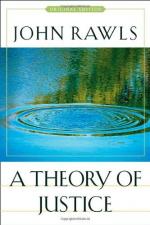
|
| Name: _________________________ | Period: ___________________ |
This quiz consists of 5 multiple choice and 5 short answer questions through The Social Contract.
Multiple Choice Questions
1. Why did Hobbes see the necessity of the Social Contract?
(a) Because he thought that was the law of nature.
(b) Because he thought it would help the British Empire.
(c) Because he thought people were stupid.
(d) Because he thought people were naturally brutish.
2. What branch of philosophy is this book concerned with?
(a) Political.
(b) Metaphysics.
(c) Epistemology.
(d) Skeptical.
3. Whom of the following was a leading 'Intuitionist'?
(a) Socrates.
(b) John Hurt.
(c) J.S. Mill.
(d) John Locke.
4. How, according to Rawls, does justice help to assign rights and duties?
(a) It states who has the power and who doesn't.
(b) It enforces the law.
(c) It ensures that some people get more duties than others.
(d) It ensures that there is an equal distribution of such.
5. Where did the early Intuitionists believe they got their appreciation of morals, rights and wrongs or fairness?
(a) God.
(b) Nature.
(c) The king.
(d) Their parents.
Short Answer Questions
1. What do Intuitionist' believe in?
2. What does the Individual gain out of the Social Contract?
3. Which century was Intuitionism first developed?
4. What is the essential problem of Intuitionism?
5. What does the Individual lose from the Social Contract?
|
This section contains 271 words (approx. 1 page at 300 words per page) |

|




